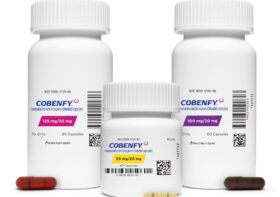The Best Face Sunscreens
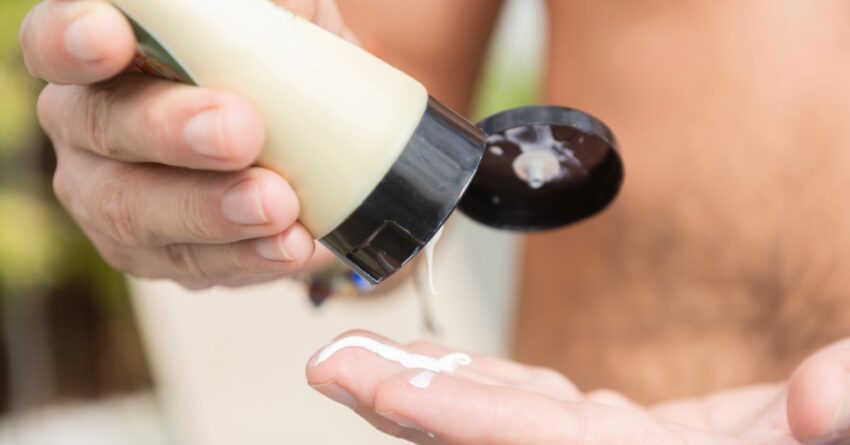
Men’s Journal aims to feature only the best products and services. We update when possible, but deals expire and prices can change. If you buy something via one of our links, we may earn a commission. Questions? Reach us at shop@mensjournal.com.
A quality face sunscreen that’s at least SPF 30 is more than just a step in your daily skincare regimen—and, yes, we said daily. Donning the best facial sunscreen means you won’t experience the same acceleration in skin aging as anyone who skips this vital step.
Think of your skin like a new pair of bright sneakers. If you want to wear those kicks often, but also need them to stay looking bright, then you might spray them with a stain repellant. Without that shield that deflects dirt and debris, you’ll be replacing the shoes much earlier, and will probably be washing them (if not bleaching the laces) many times along the way. As for your skin, investing in one of the best face sunscreens on the market can save time and money on often pricier products, like corrective serums, eye creams, and night creams. The simple secret is using SPF every single day.
Related: Best Skincare Products to Remove Dark Spots and Hyperpigmentation
The sun’s UV rays can penetrate overcast skies and the thickest glass, while silently mutating your skin cells and stifling your skin’s elasticity, firmness, brightness, and resilience. Those invisible rays can also cause discoloration, dryness, dehydration, looseness, and more. Your one defense (aside from hiding indoors with the shades down) is a quality face sunscreen that’s at least SPF 30. The good news is that there are plenty of excellent SPF product options. The better news—you can even get it from your daily moisturizer to save money and an extra step.
Read on for more information on finding the best face sunscreen and for our top picks—including our numero uno, Ursa Major’s new Force Field SPF 30 mineral sunscreen, which would already be one of the best moisturizers without the SPF. So, with that sun protection, it’s unstoppable.
How We Tested
At Men’s Journal, we’re constantly testing the latest products, some of our team with more than a decade of grooming coverage under their belt. Whenever something enters the marketplace, it’s also at our desks, and quickly being tested. Think of us as grooming lab rats; we get to enjoy the spoils when something is really great, and endure the agony when a product isn’t up to par.
How to Shop for Face Sunscreens Get SPF 30 or Greater
Every single dermatologist will tell you that you need a daily sunscreen of SPF 30 or greater. That recommendation is also preached by the American Academy of Dermatology (AAD) and the FDA. SPF 30 blocks 97% of UV rays over the course of two hours, compared to just 93% with SPF 15. It’s the biggest jump between SPF values, as the increase to SPF 50 will only add an additional percentage to your shield—while SPF 100 will thwart 99% of rays.
So, while SPF 50 and 100 are great, they’re really just imperative for fair and sensitive skin types—and anyone who wants to bounce as many rays as possible (which we respect). Think of SPF 30 as the minimum—but a good baseline at that.
Related: 10 Ways to Look Better Instantly
Face Sunscreens vs. SPF Moisturizers
Next, it’s important to think about your regimen, and how likely you are to apply an additional product over top of your moisturizer every day. If you already have a non-SPF moisturizer that you don’t want to part with, you’ll need to get a dedicated face sunscreen (not a body sunscreen).
Some brands will make products that target face and body, meaning the formula was made with the sensitivity of the face in mind—but if it just says “body,” then it’s not for the neck upwards (it’s oily and can lead to breakouts). On the other hand, if you’re open to getting a new moisturizer with SPF, then using one every morning will spare you from applying two heavier, back-to-back products.
Pro tip: you can always reassign that non-SPF face moisturizer you like to bedtime application when you won’t be needing any sunscreen.
Related: Stylists Say These Are the Best Ways to Cover Gray Hairs
Broad-Spectrum Coverage
Make sure your SPF is “broad spectrum,” which most SPFs these days are. This means the product will block both types of UV rays that penetrate the atmosphere: UVA and UVB rays. UVA rays are the ones that cause signs of accelerated aging and make skin more tanned; UVB rays make your skin burn and can cause skin cancer.
Mineral vs. Chemical SPF
Finally, it’s important to think about your preference between mineral and chemical sunscreens. Chemical sunscreens absorb into your skin, where they then absorb any UV rays and neutralize them before they do damage. Mineral sunscreens sit atop your skin and deflect UV rays entirely. Some might leave a white cast on the skin, since their primary ingredients (zinc oxide or titanium dioxide) aren’t being absorbed.
Your decision comes down to whether or not you care about using chemical sunscreens. Some people avoid them altogether since the worst ingredients in that category have been proven to absorb into the endocrine system and disrupt hormones. They’re also not great for marine life. The worst offenders, oxybenzone and octinoxate, have been largely banned from production, and the remaining primary chemical SPFs (avobenzone, octisalate, and homosalate) are more or less cleared for use by the FDA. Keep in mind that these are also likelier to cause reactions than mineral options.
The general consensus is that mineral sunscreens are the superior choice. If you go the mineral route, be sure to prioritize formulas with zinc oxide since it offers a slightly broader coverage than titanium dioxide. Look for the words “non-nano” with any mineral picks, because it means the ingredients’ particles aren’t so small that they can be absorbed by your skin or marine life.
The Best Face Sunscreens Best Overall and Top Mineral SPF Moisturizer: Ursa Major Force Field SPF 30 
Courtesy Image
What boxes doesn’t this one check? Here is a lightweight, cast-free mineral SPF 30 (non-nano) shield with 15% zinc oxide in a moisturizer chock full of skin-fortifying ingredients like hydrating sodium hyaluronate and skin-toning squalane. On top of that, it has two ingredients that help shield skin against the potentially damaging effects of constant blue light exposure from our daily devices (those ingredients are elfdoc flower and lingonberry stem cells). Combine all that with Ursa Major’s overall ethos of being plastic negative, reef safe, cruelty free, and using clean ingredients, and it’s an easy call for top spot on this list.
[$58; dermstore.com]
Best Chemical SPF Moisturizer: Cardon SPF 30 Moisturizer 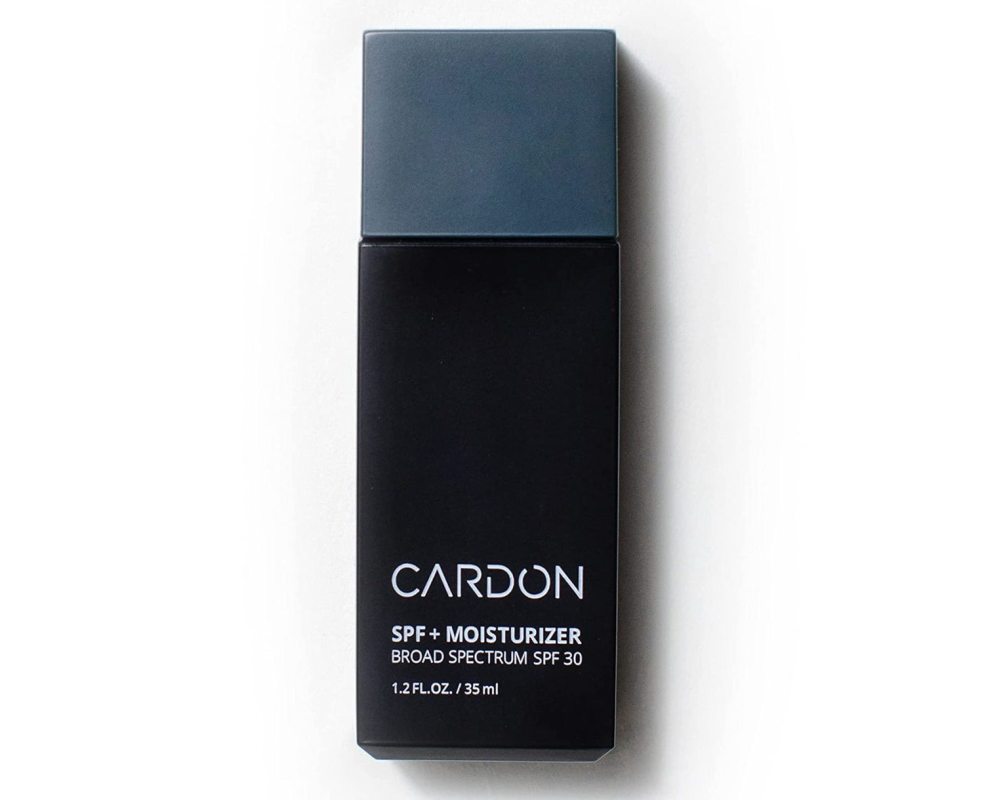
Courtesy Image
Cardon’s excellent SPF moisturizer is proof that great things come in small packages—and rest assured, a little goes a long way. This tiny carton will give you a daily lightweight layer of sun defense, along with the soothing and anti-inflammatory powers of cactus extract as well as Vitamins A, D, E, and K for a host of anti-aging, skin-fortifying, nourishing benefits.
[$22; amazon.com]
Best Mineral Face Sunscreen: Dune Mineral Melt SPF 30 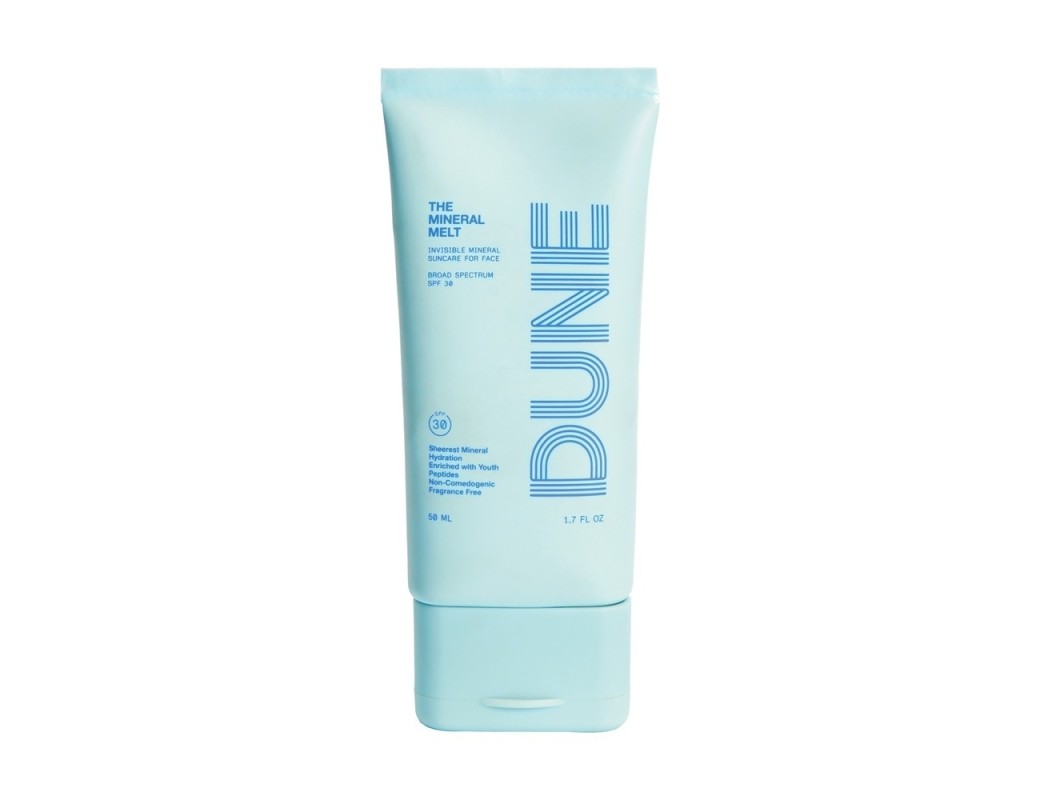
Courtesy Image
“Melt” is the perfect name for this one, given it seemingly melts into skin despite a mineral layer that rests atop the surface. This zinc oxide-titanium oxide blend provides a clear, cast-free finish, promises to wear light without clogging pores, and also has peptides to promote elasticity and softness. You might mistake it for a moisturizer, given all of these benefits. It won’t feel like an extra layer since it is, in fact, a standalone face sunscreen.
[$30; ulta.com]
Best Chemical Face Sunscreen: Oars + Alps Go Stick Clear SPF 35 Face Sunscreen 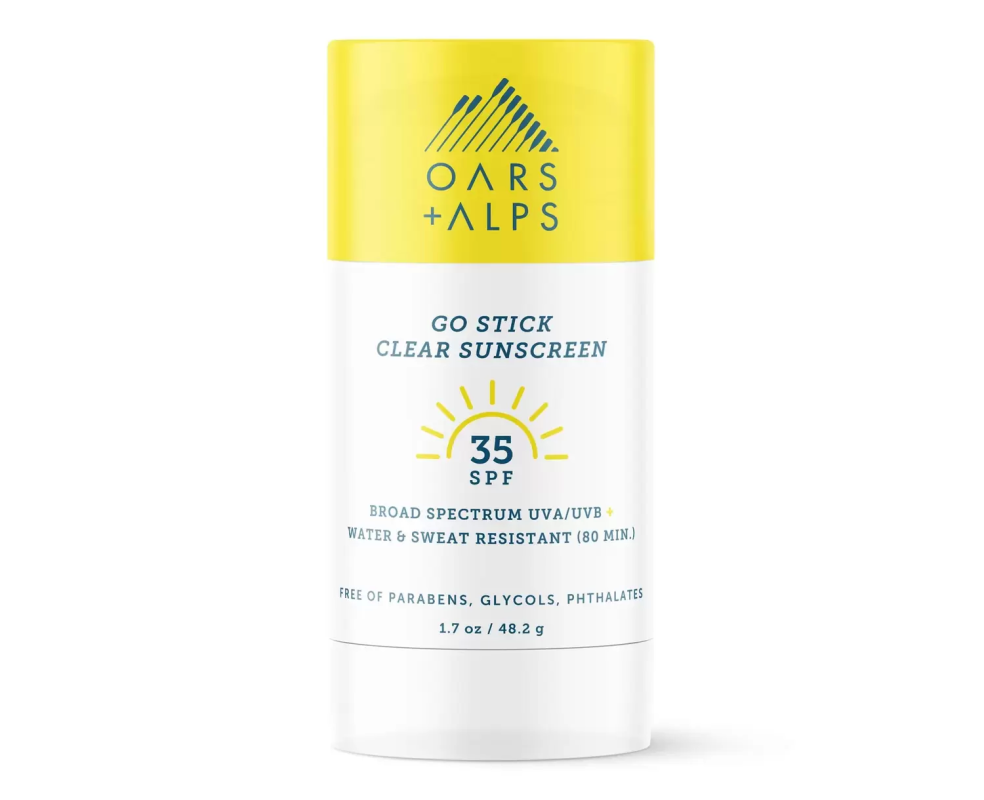
Courtesy Image
This spill-proof stick is a great travel companion, and also wears light on skin while providing a generous SPF 35 shield. It’s enriched with antioxidants to further neutralize the attack from UV rays, along with nourishing Vitamin E. It’s also water- and sweat-resistant for up to 80 minutes, meaning it’s a great pick for athletes and beach days.
[$24; amazon.com]
Best Face Sunscreen for Fair Skin: Supergoop Every. Single. Face. Watery Lotion SPF 50 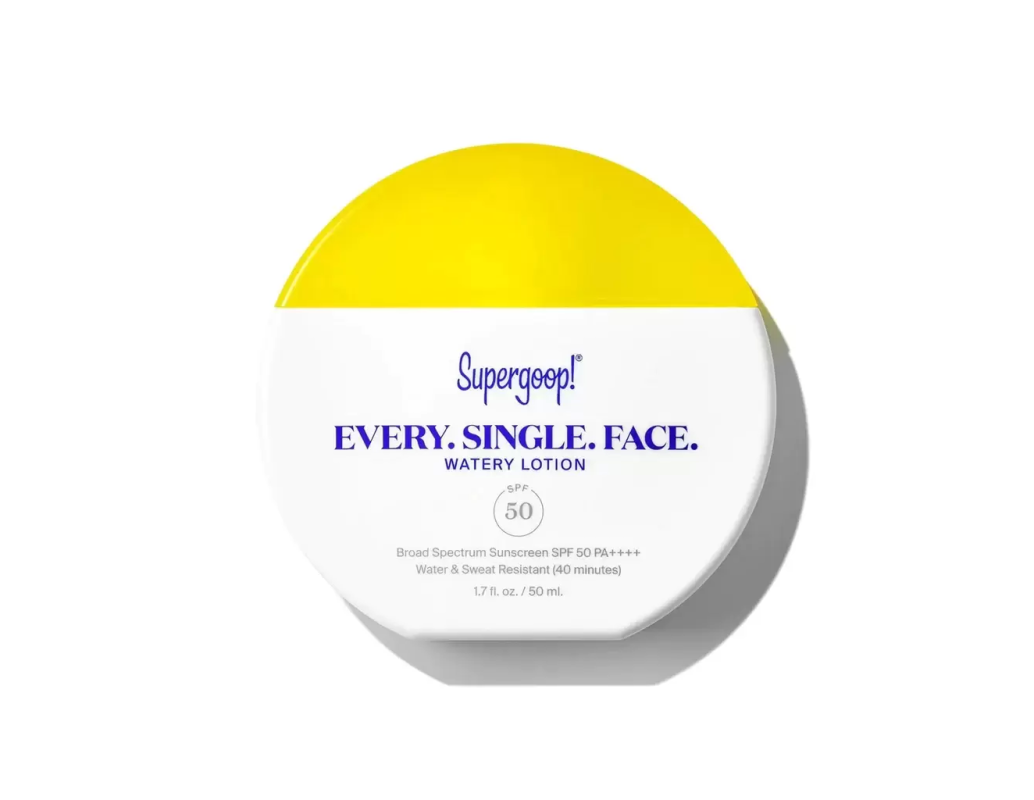
Courtesy Image
Supergoop is synonymous with sunscreen at this point, since their entire brand is built on the basis of sun defense. No surprise, the brand is a top contender in just about every possible category on this list (plus body sunscreens, scalp SPFs, and more). Here, though, is a lightweight, easily absorbed chemical SPF option, which is sweat- and water-resistant up to 40 minutes while satisfying all skin types.
[$34; amazon.com]
Best Face Sunscreen for Athletes: Vertra Invisible Face Stick SPF 45 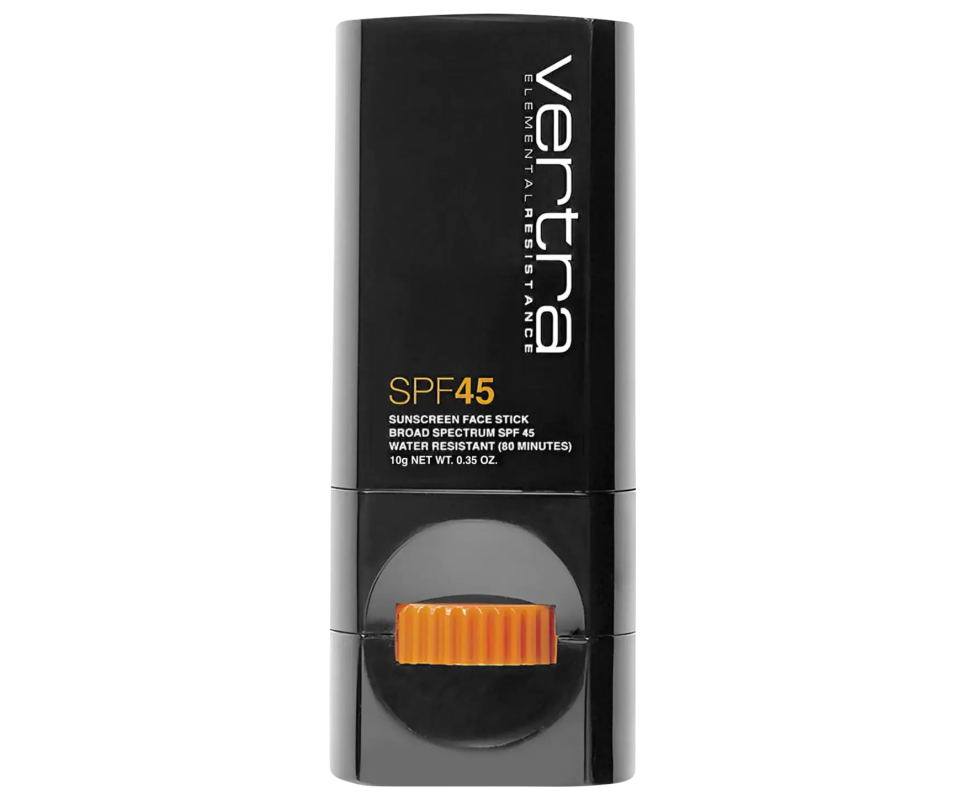
Courtesy Image
Vertra’s various SPF sticks and SPF moisturizer are a masterclass in how there is no one-product-fits-all solution with SPF. This water- and sweat-resistant Invisible Face Stick might satisfy the broadest audience, though, and especially the outdoor enthusiasts who plan to hit the waves, run under the sun, or splash around the pool. Its 22% zinc oxide defenses will shield UV rays through that sweat for as long as 80 minutes, and its non-nano mineral formula is kind to both human skin and marine life.
[$21; vertra.com]
